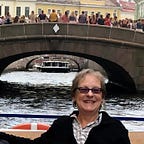Poetic Forms
I adore Sandburg’s poetry description: poetry provides a medium you can enjoy with all your senses. In his example, you can see, smell, and touch both items; you can taste the biscuits and hear the crunch as you bite.
I have been working diligently on various poetic forms over the past month, trying to stretch my poetic skills. Two forms involved more than inscribing a poem, so they were a new challenge.
In the process, I have been steadily submitting poems to both print and online journals. [Note: I have not included copies of my work referenced in this article, which have been accepted for publication, because the pieces have not yet been published. I will be happy to share the poems once they are in “print”-online or actual print journals].
The first form I sent out was a haibun. The first recipient gracefully declined, but I was delighted when the second journal accepted my work. I’m even more pleased because this site produces a PRINT journal. What is a haibun? The following definition and picture will help explain the form.
Haibun Definition: Haibun is a Japanese form pioneered by the poet Basho. Every haibun begins with a title, followed by a prose-like paragraph. Next, a haiku describes the scene. The two elements are interwoven and refer to each other. See the example below to get a sense of the form.
The second type of poem is a haiga. I created several haiga and am happy to report that two have been accepted: one to a PRINT journal, and the second to an online journal. I won’t mention how many were summarily rejected. The following definition and photo will aid your understanding of this format.
Haiga Definition: Haiga is another Japanese form. It was popularized by Yosa Buson, a Japanese poet and artist. Haiga merge haiku/senryu and an image (either a photo or painting) inspired by the poem. Some poets type the poem below the picture; others superimpose the poem on the artwork.
In addition to haibun and haiga, I have continued to submit haiku with a smattering of acceptances. It’s all good; a poet must be humble.
What new challenges have you undertaken lately? Have they been in your work life, physical fitness, or creative venues?
